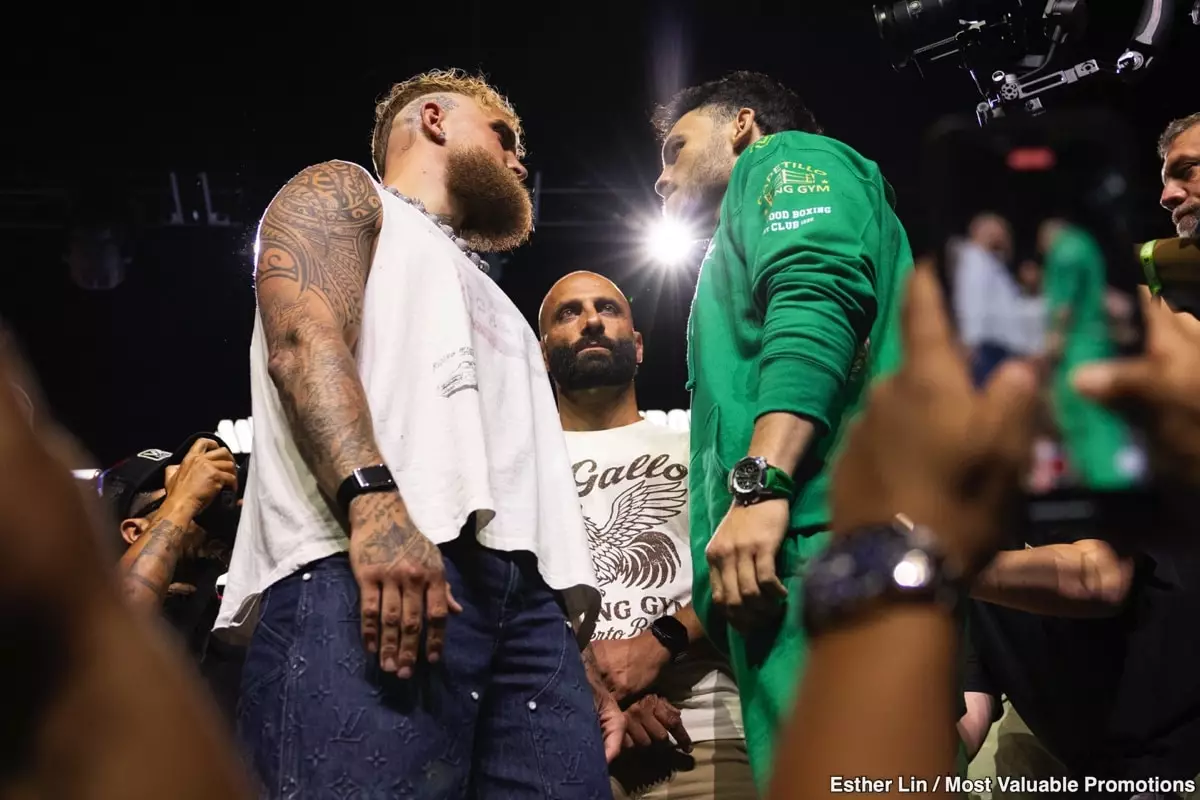It’s tempting to dismiss Jake Paul as just another internet celebrity trying to cash in on the boxing world, but his impact over the last five years cannot be ignored. Since his professional debut in early 2020, Paul has transformed from a novice with a massive online following into a bona fide promoter shaking up the status quo. While purists often scoff at the spectacle surrounding his fights, his ability to secure prime placements like Netflix specials is a testament to the savvy approach he and his team have taken. This promotes not only his own brand but also helps shine a light on lesser-appreciated niches, including women’s boxing—a sector often neglected in mainstream sports media.
Paul’s background as an entertainer has blended with his promoter role to create events that attract a broader audience than typical boxing cards. Though some of his opponents have come with questions about legitimacy, his knack for marketing has undeniably brought new eyes to the sport, a feat seasoned professionals sometimes struggle to accomplish.
The MMA Crossover Strategy: Genius or Gimmick?
Jake Paul’s early choice of opponents sparked debate but undeniably worked as a strategic move to build his credibility. Fighters like Anderson Silva, Nate Diaz, and Tyron Woodley—while legendary in MMA circles—were arguably past their prime or not traditional boxers, giving Paul a competitive edge. These matchups were carefully crafted to draw in MMA fans curious to see whether their favorite fighters could outbox this brash newcomer. Many predicted that these established athletes would “put Paul in his place,” but time after time, Paul’s decisive victories crushed those expectations.
That said, this strategy is a double-edged sword. While it bolstered Paul’s win tally, critics argue it clouded the real question of how he would fare against an elite, full-time boxer. This doubt was laid bare when Jake faced Tommy Fury, a young fighter from a respected boxing family, where Paul’s loss suggested his victories to date might have been more about marketing than skill. The MMA crossover served its purpose but ultimately may have delayed Paul’s exposure to truly elite competition.
Julio Cesar Chavez Jr: A Litmus Test or a Low Bar?
Paul’s upcoming fight against Julio Cesar Chavez Jr. presents a different case. Chavez Jr. is a name steeped in boxing history, but his recent performances raise serious doubts about his current capacity as a competitor. Once considered a promising talent, Chavez’s career has been marked by inconsistency and questionable decisions, including an infamous moment when he quit on the stool against Danny Jacobs. His lifestyle off the ring further muddies perceptions of his dedication.
At 39 and many years removed from his prime, Chavez Jr. seems far from the formidable boxer he once was. His split decision loss to Anderson Silva, easily bested by Paul, is a glaring reminder of decline. Yet, Paul’s camp cannot take him lightly, especially since Chavez Jr. outpointed MMA fighter Uriah Hall in mid-2024, hinting he still carries some skill and experience. The betting odds reflect this ambiguity, painting Chavez Jr. as a sizable underdog but not an impossible one.
The Broader Implications for Boxing’s Future
Whether or not Jake Paul wins against Chavez Jr., his presence in boxing forces the sport to confront uncomfortable questions. Should boxing embrace these crossover stars who bring attention and revenue at the risk of diluting competitive integrity? Or is Paul simply the catalyst for a new era where traditional boundaries between combat sports dissolve and promotion savvy becomes as valuable as punching power?
My personal take is that while Paul’s journey has been marred by controversy and questions about the caliber of his opposition, his impact is undoubtedly positive in one key aspect: revitalizing boxing’s visibility. Even if his skill ceiling remains contested, he’s managed to push the sport into new territories and audiences, forcing both promoters and fighters to adapt or risk obsolescence. His willingness to invest in women’s boxing, often overlooked, deserves particular commendation.
The undercard of his upcoming fight also signals that Paul’s events are evolving beyond mere spectacle into showcases of genuine talent. Fighters like Gilberto Ramirez and Tevin Farmer bring authentic excitement, suggesting a future where Paul’s platform could serve as a springboard for more serious boxing careers.
In the unpredictable landscape of modern boxing, Jake Paul embodies both the chaos and opportunity of this era—a polarizing figure but undeniably a powerful force driving change.


Leave a Reply